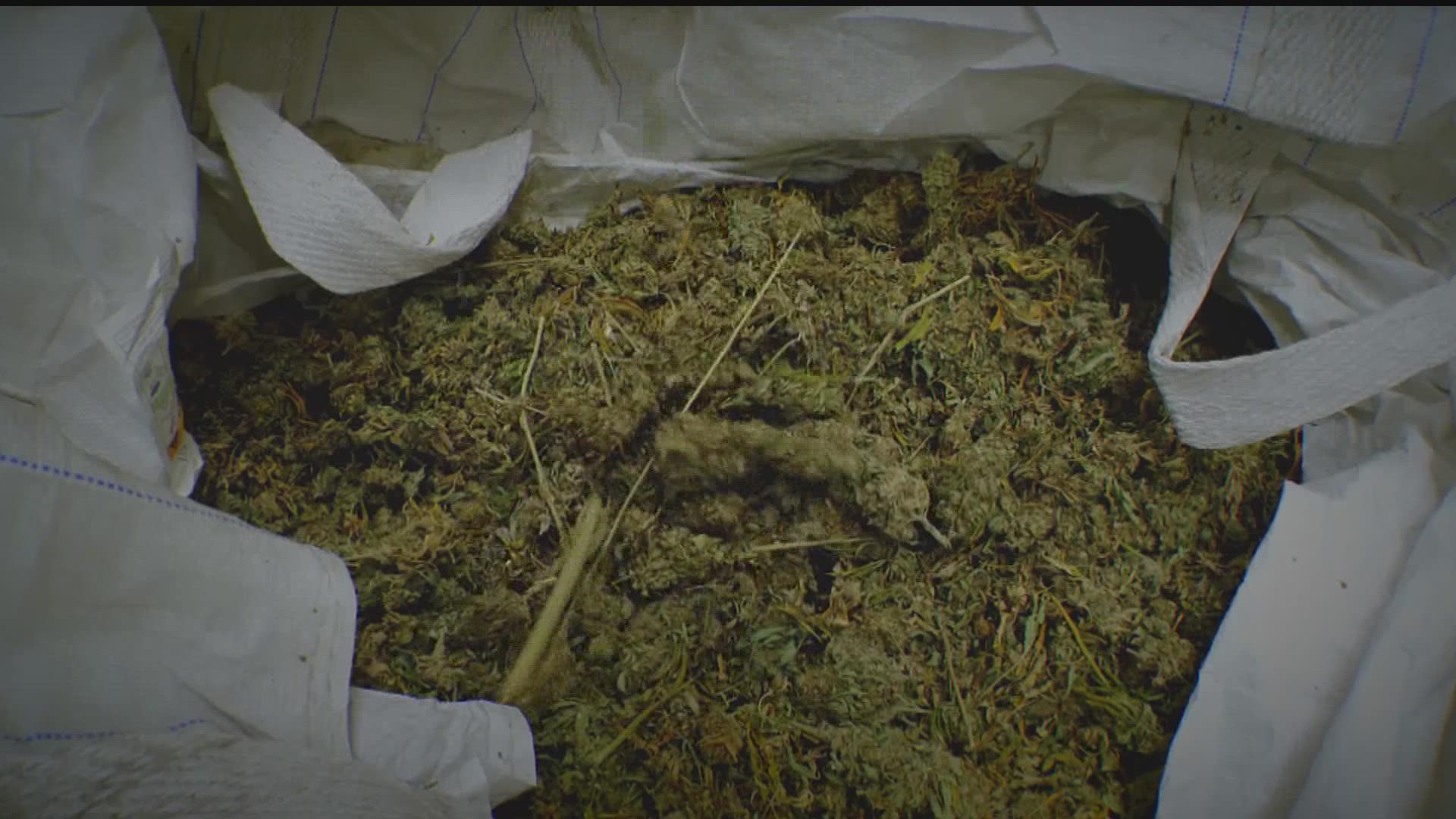SAINT PAUL, Minn. — For years, in Minnesota's divided legislature, the DFL-led House passed recreational marijuana legalization measures that would fail to receive hearings in the Republican-led Senate.
The results of this week's election, however, has changed the equation, now that the DFL controls the House, Senate and governor's office for the first time in nearly a decade.
Although DFL leaders have revealed few details about how they'll govern, they've hinted that full legalization could move forward next session. Former Gov. Jesse Ventura even claimed on a podcast that Gov. Walz told him the DFL would make legalization an early priority next session. The governor's office confirmed that the two spoke on Wednesday, but did not elaborate about any potential timeline.
Zach Rohr, founder of "Minny Grown" in Cannon Falls, said this summer's new law legalizing hemp-derived THC has already boosted his sales. Now, he's looking to expand further, with legalization possibly on the table.
"We're expecting big things and we are anticipating this to go to full legalization," Rohr said. "Our plan is four to five dispensary locations... as well as ramping up cultivation, to meet demand."
Twenty-one states and the District of Columbia have now legalized recreational marijuana, after voters in Maryland and Missouri approved ballot measures during this week's elections.
"It is absolutely happening in the Midwest," Rohr said, "and it's going to be great for business."
However, three other states — including North Dakota and South Dakota — rejected ballot measures this week. The American Academy of Pediatrics also still opposes the legalization of marijuana "because of the potential harms to children and adolescents," although the group "supports studying the effects of recent laws legalizing the use of marijuana to better understand the impact and define best policies to reduce adolescent marijuana use. In states that have legalized marijuana for recreational purposes, the AAP strongly recommends strict enforcement of rules and regulations that limit access and marketing and advertising to youth."
Kim Bemis, the co-chair of "Smart Approaches to Marijuana Minnesota," said he remains concerned that full legalization might give younger kids more access to the drug. He said his organization, which supports decriminalization but opposes full legalization, plans to challenge any bills that come to the floor next session.
"With the kind of data that we've got, and the stories that we are planning to bring forward from families, we hope it's something that makes legislature listen," Bemis said. "Why are we commercializing and legalizing another addictive drug in the state of Minnesota, when there is mounting evidence that this is not a good thing, not a healthy thing to do, especially for adolescents?"
Bemis said that if a legalization bill becomes inevitable, he would at least push to restrict potency levels.
There are still a lot of questions about the potential legislation, however. Jeff Hayden, a former DFL Minnesota State Senator, said he will be interested to see what type of framework his former colleagues might try to implement.
"The question is, will they incrementally fix what they did last year, and work on a larger bill and do that the year after?" Hayden said. "Or will that be a priority, with enough time to get it done?"
If the legislature were to approve recreational pot in January 2023, Zach Rohr said he believes licensing could happen as early as March.
"Of course, we want to find a way to reasonably dispense the products, manufacture them and keep them safe from the public, especially kids," Rohr said. "It's going to be very important on how they set that structure because, ultimately, that will determine the success of the industry in Minnesota."
Watch more local news:
Watch the latest local news from the Twin Cities in our YouTube playlist:

